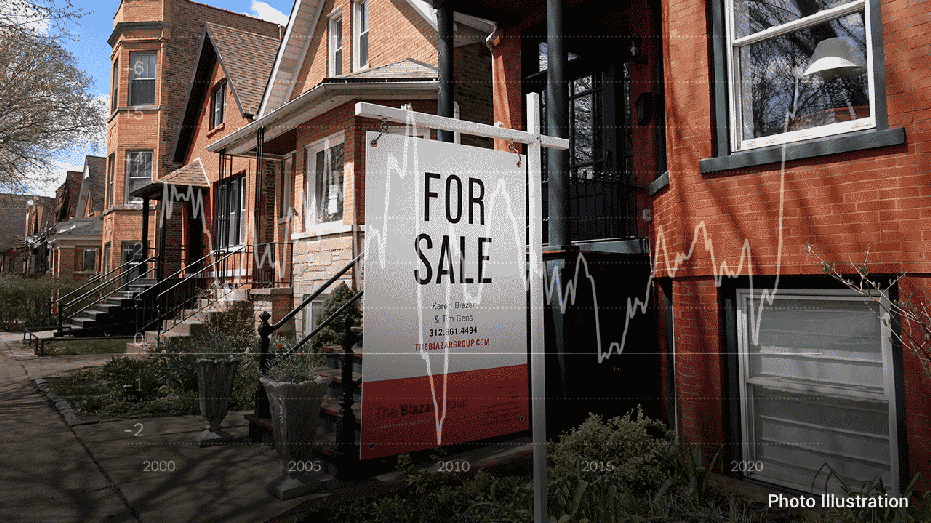Here are the key events taking place on Tuesday that could impact trading.
EXTRAORDINARY TIMES: Electric vehicle pioneer Elon Musk called for more drilling and exploration of fossil fuel resources in the immediate future on Monday, warning that humanity could be in trouble if the transition to lower-carbon energy sources is rushed.
"Realistically, I think we need to use oil and gas in the short term, because otherwise civilization will crumble," the Tesla CEO told reporters at a conference in Stavanger, Norway.
"One of the biggest challenges the world has ever faced is the transition to sustainable energy and to a sustainable economy," he continued. "That will take some decades to complete."
ELON MUSK SAYS TESLA AIMS TO ROLL OUT COMPLETELY SELF-DRIVING CARS BY END OF THE YEAR

Tesla CEO Elon Musk called for more drilling and fossil fuel resources on Monday, August 29, 2022, warning humanity could be 'in trouble' if exploration is curtailed. (AP Photo/Jae C. Hong, File / AP Newsroom)
When oil was its peak earlier this year, Musk tweeted that "we need to increase oil & gas output immediately."
"Extraordinary times demand extraordinary measures," Musk tweeted on March 4. "Obviously, this would negatively affect Tesla, but sustainable energy solutions simply cannot react instantaneously to make up for Russian oil & gas exports."
Musk has also been a proponent of nuclear energy and has criticized countries that plan to phase out their nuclear reactors.
ALL VERY DIFFERENT: National Housing Conference CEO David Dworkin stressed Monday that the current slowdown is "nothing like the last housing crisis," arguing that "all the major fundamentals are very different."
"The law of supply and demand is never repealed, so we have a very different situation where instead of having a demand-driven crisis, we’ve actually had a supply-driven crisis that has increased home values and home prices by a lot," Dworkin told "Cavuto: Coast to Coast."
He noted that in 2008 the market "was fueled by toxic mortgages and people were getting interest rates on a teaser basis that they couldn’t possibly repay."
For months, the housing market was buoyed by record-low interest rates at the same time that American homebuyers – flush with stimulus cash and eager for more space during the pandemic – started flocking to the suburbs.
HOME SALE CANCELLATIONS SURGE TO ANOTHER 2-YEAR HIGH AS BUYERS PULL BACK

Economic factors brought on by inflation are preventing entry-level homebuyers from purchasing homes. High home prices combined with the rapid rise in borrowing costs has pushed many entry-level homebuyers out of the market. (iStock / iStock)
But the interest rate-sensitive sector has started to cool considerably as the Federal Reserve moves to tighten its policy at the fastest pace in three decades in order to bring persistent inflation under control.
Policymakers already approved two consecutive 75-basis point rate increases in June and July and confirmed that another supersized hike is on the table in September.
Following the rate hikes, the average rate on a 30-year fixed mortgage – the most popular among new homeowners – climbed to nearly 6% in June, though they have since moderated. The average rate for a 30-year fixed rate mortgage hovered around 5.55% for the week ending Aug. 25, according to recent data from mortgage lender Freddie Mac.
That is significantly higher than just one year ago, when rates stood at 2.86%.
COLD WINTER AHEAD?: Diesel and heating oil supplies are dangerously low in the Northeast compared to the recent average, prompting concerns from officials as winter approaches.
Diesel fuel and heating oil, which comprise the distillate category, are 63% below the five-year average in New England and 58% below the same average from Maryland to New York, according to a survey by the Department of Energy.
The agency said that gasoline inventories are not as bad but are still at their lowest levels in nearly a decade along the entire East Coast.
Based on data released Aug. 17 by the Energy Information Administration, distillate stocks for the East Coast are 47% below the seasonal five-year average, the DOE told FOX Business.
Gasoline stocks for the East Coast are 20% below the seasonal five-year average, with New England being 23% below, the Central Atlantic being 27% below, and the Lower Atlantic being 12% below, the DOE said.
MORE THAN 20 MILLION US HOUSEHOLDS ARE BEHIND ON UTILITY BILLS

Diesel and heating oil inventories are down for the Northeast from Maine to Maryland. (iStock / iStock)
For the week ending Aug. 19, total gasoline stock for the East Coast was 53.6 million barrels, down from 56.4 million a year ago and up from 50.9 million for the week ending Aug. 12, according to DOE data.
The Northeast is heavily dependent on heating oil to keep homes warm in the winter, while other regions rely more on natural gas and electricity. Most fuel consumed from the Middle Atlantic states to Maine comes from Gulf Coast refineries, according to energy officials.
The low diesel and heating oil supply levels have raised concerns that a hurricane or other event could cause supply disruptions. Heating oil disruptions would hit the region hard because the percentage of homes that rely on it ranges from 24% in Massachusetts to more than 60% in Maine, the most heavily dependent states
HOME PRICE DATA, CONSUMER CONFIDENCE REPORTS: Data on home prices, jobs, and the mood of consumers will be released Tuesday morning.
At 9 a.m. ET, we’ll get a look at home prices for June from S&P CoreLogic Case-Shiller.
There is no estimate for the non-seasonally adjusted 20-city index, but economists surveyed by Refinitiv expect the seasonally adjusted index to rise 1% month-over-month.
For the year, home-price growth as measured by the 20-city index is anticipated to cool slightly to 19.5% in June, down for a second month from a record 21.2% annual increase in April.

June home prices are expected to cool slightly when figures are released early Tuesday morning. (istock / iStock)
At 10 a.m. ET, watch for the latest Job Openings and Labor Turnover Survey.
The Labor Department is expected to say that there were 10.475 million job openings available at the end of July, down from a lower-than-expected 10.698 million in June, and down a fourth month from a record 11.855 million in March.
It would also mark the lowest level of openings since June 2021. Still, the number of jobs that need to be filled is nearly double the number of people looking for work (5.67 million in July per BLS), signaling an extremely tight labor market as employers struggle to fill positions.
Finally, at 10 a.m. the Conference Board will release its consumer confidence index for August.
It’s expected to rise for the first time in four months to 97.9, lifting off the lowest in a year-and-a-half (since February 2021).
Confidence is down sharply from a post-pandemic high of 128.9 in June of last year on inflation concerns.
MARKETS NERVOUS OVER INFLATION FEARS: U.S. Treasury yields climbed Monday as a selloff in government bonds gathered pace, highlighting investor unease at the likely impact of the Federal Reserve's promise to hold the line against inflation.
The yield on the two-year Treasury note, which is more sensitive to near-term Fed policy expectations, rose to 3.427% from 3.391% Friday.
Meanwhile, U.S. stock indexes finished lower after Friday's washout. The S&P 500 dropped 27.05 points, or 0.7%, to close at 4030.61. The Dow Jones Industrial Average lost 184.41 points, or 0.6%, to 32098.99, while the tech-focused Nasdaq Composite Index was off 124.04 points, or 1%, to 12017.67.
Monday's moves suggest U.S. stocks could see more turbulence ahead, as traders assess Fed Chairman Jerome Powell's comments from last week in Jackson Hole, Wyo.
| Ticker | Security | Last | Change | Change % |
|---|---|---|---|---|
| I:DJI | DOW JONES AVERAGES | 32098.99 | -184.41 | -0.57% |
| SP500 | S&P 500 | 4030.61 | -27.05 | -0.67% |
| I:COMP | NASDAQ COMPOSITE INDEX | 12017.668585 | -124.04 | -1.02% |
Powered By | ||||
Powell said the U.S. central bank must continue raising interest rates, and keep them at an elevated level, until it is confident that inflation is under control.
"They're not so concerned about heading into a recession as they are in combating inflation – so that makes for a very dangerous setup," said Jerry Braakman, president and chief investment officer of First American Trust in Santa Ana, California.
Many investors had begun to wager that this year's historically large rate increases were in the rearview mirror and that, starting in September, the Fed would slow the magnitude of increases before cutting rates next year. Those beliefs had helped markets mount a recovery in recent weeks, rallying nearly 10% since the S&P 500's 2022 low on June 16.
Powell's Friday comments shuffled those expectations.
On Monday, federal-funds futures, used by traders to place wagers on the course of interest rates, showed a 75% chance that the central bank would lift interest rates by 0.75 percentage point for a third time in a row in September. That is up from 28% a month ago, according to CME Group data.

